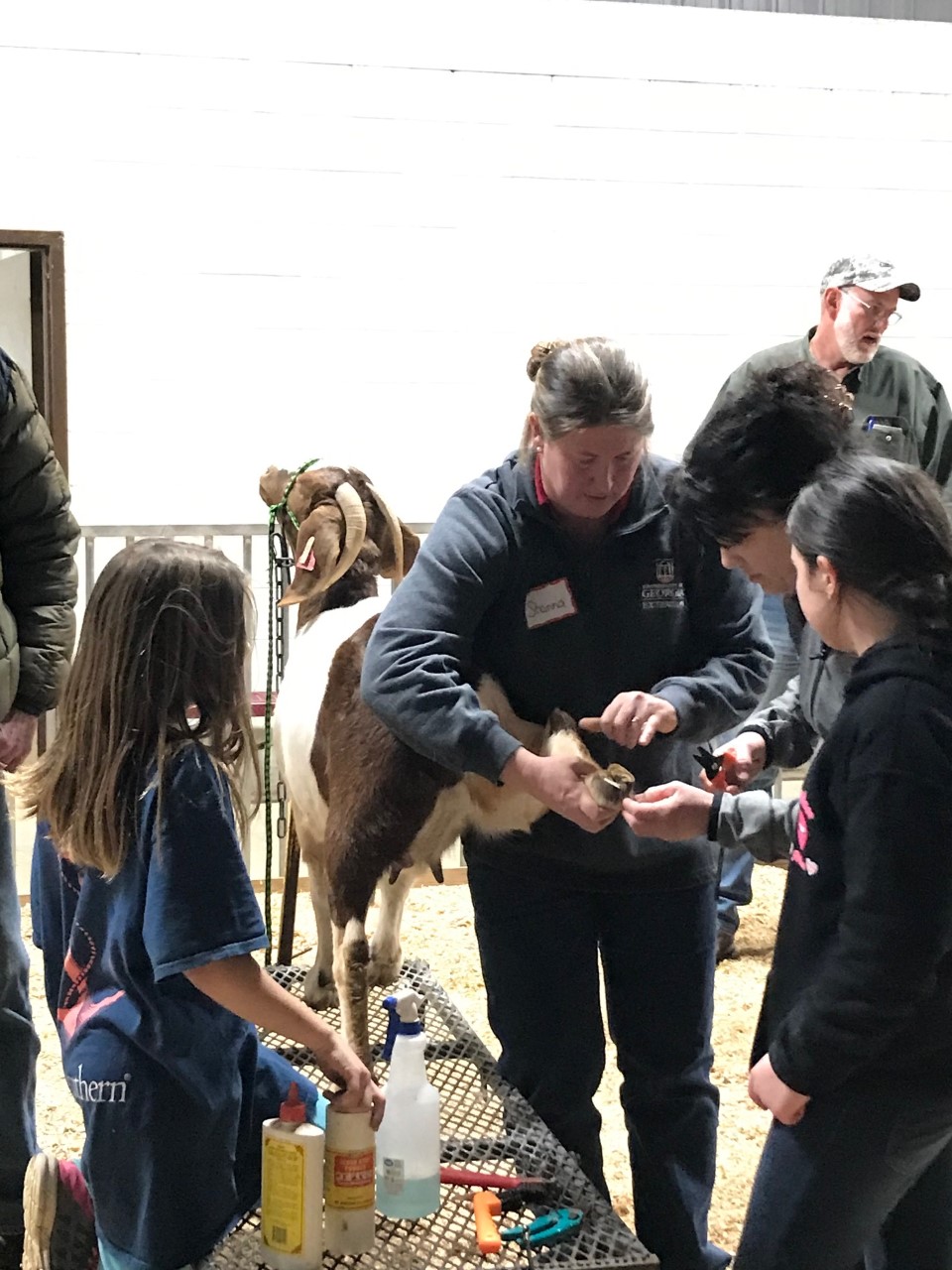- Reynolds, Shanna
Summary
Livestock production is a prominent industry in Oglethorpe County with sheep and goat ownership particularly on the rise. Limited education opportunities in the past have granted an opportunity for expanded Extension programming. The Agriculture and Natural Resources Extension Agent in Oglethorpe County has observed producers dealing with poor small ruminant animal health as a result of drug resistant parasites and a lack of education on best management practices. In response, the agent coordinated a series of quarterly producer meetings, developed office education resources, contributed news articles, and conducted in person consults and demonstrations. The small ruminant education efforts by the Extension agent have been well received as demonstrated by verbal feedback, newspaper coverage, positive evaluation responses, and repeat attendance. The agent has observed more responsible chemical use and indications small ruminant producers will implement improved production practices in the future.
Situation
Livestock production is a prominent industry in Oglethorpe County accounting for over $65 million annually to the local economy according to the 2018 Georgia Farm Gate Value Report. As small farms gain popularity in the area, sheep and goat ownership is on the rise. The number of small ruminants in Oglethorpe County increased by 28% from 2018 to 2019. Increased numbers of sheep and goat populations along with limited education opportunities in the form of associations or producer groups provided an opportunity for expanded Extension programming. Over the past year, the Agriculture and Natural Resources Extension Agent in Oglethorpe County has observed producers dealing with poor small ruminant animal health as a result of drug resistant parasites and a lack of education on best management practices for sheep and goats.
Response
Oglethorpe County Extension developed curriculum and coordinated quarterly meetings of local sheep and goat producers. Each meeting has a presentation on a timely management topic led by Extension specialists, agents, or industry professionals. Following the lecture, there is a discussion and allotted networking time as well as an opportunity for questions of the speaker. The meetings end with a hands-on demonstration of husbandry practices. Participants are asked to complete an evaluation before leaving the meeting. Topics covered to date have been kidding/lambing, ear tagging, internal parasite management, hoof care, soil fertility, forage selection, and general nutrition. The FAMACHA© method is a way for producers to identify specific animals that require treatment for internal parasites. Utilizing this system can significantly decrease drug resistance in a small ruminant herd. A free online FAMACHA© certification opportunity was provided in cooperation with Fort Valley State University and Virginia State University Specialists. This essential certification process for parasite management is rarely offered at no charge to participants. Oglethorpe County Extension maintains a listserv of sheep and goat producers through which quarterly meetings are promoted as well as other Extension educational opportunities. The Extension agent has developed fact sheets and guides for use in the county office on common production issues. The agent also makes frequent farm visits with small ruminant producers and demonstrates hoof trimming techniques, animal visual inspections, and fecal sample collection. Participants from the producer meeting where kidding and lambing was discussed were given live access to a goat farm birthing barn camera during the 2020 kidding season. The agent has trained two producers and one neighboring county agent on fecal floatation testing to identify internal parasite loads of small ruminants. The agent produced an Integrated Parasite Management article that was contributed to the local newspaper, a statewide small ruminant newsletter, and UGA Extension’s Integrated Pest Management Newsletter. Oglethorpe County Extension partnered with Oconee and Morgan County Extension agents to conduct the Journeyman Farmer Small Ruminant Production certification course in the fall of 2020.
Impact
The small ruminant producer group has been a tremendous success as demonstrated by positive evaluation responses and repeat attendance by numerous participants. The agent has observed more responsible chemical use and positive identification of health issues among sheep and goat herds. Two local producers have reported purchasing their own microscope and fecal egg count equipment for parasite management. Written evaluations indicated 100% of respondents were “very likely” or “somewhat likely” to modify current production practices based on information gained from the producer meetings. Participating producers indicated they intended to implement a variety of new practices including nutritional flushing of females, implementing a controlled breeding season, making an emergency lambing kit, use soil testing services, over seeding pastures, and rotational grazing according to pasture height. Each of these changes in producer behavior has the potential to result in future increased profits and sustainability. An unexpected benefit has been local newspaper coverage of the small ruminant producer group success which increases public awareness of Extension services.
State Issue
Animal Production
Details
- Year: 2020
- Geographic Scope: Multi-County
- County: Oglethorpe
- Location: College Station, Athens
-
Program Areas:
- Agriculture & Natural Resources
Author
Extension Impact

